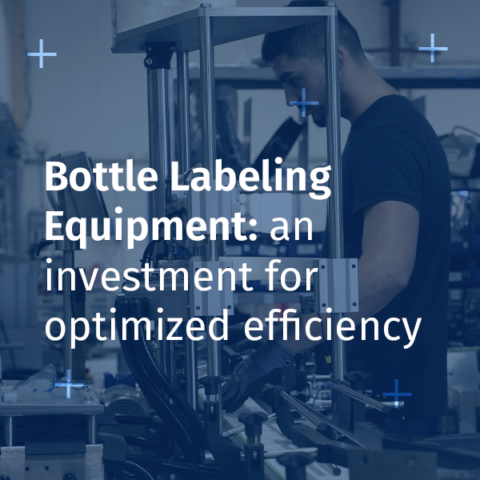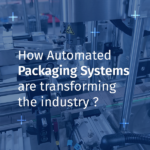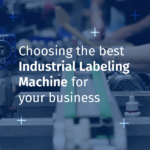Bottle labeling is a critical stage in the packaging process that significantly impacts the overall efficiency of a production line. Accurate and rapid labeling not only boosts productivity but also helps maintain brand consistency and product quality.
In this article, we will explore how investing in bottle labeling equipment can be a worthwhile investment, its effects on production, and which industries benefit the most from automated labeling solutions.
Why Is Labeling important for Production Line Efficiency?
The efficiency of production lines depends on three key factors: equipment availability, production performance, and product quality. This concept, often measured using the OEE (Overall Equipment Effectiveness) metric, is used to assess the effectiveness of industrial equipment. An OEE score above 85% is considered high-performing in most manufacturing sectors. Manual labeling is not only time-consuming but also generates variations in quality and appearance, which can lower the overall OEE score.
In contrast, automatic labeling equipment enables higher production speeds while minimizing human errors. By reducing downtime and optimizing throughput, an automatic labeler ensures consistent productivity and a measurable long-term return on investment.
The Benefits of Automated Labeling Equipment for Productivity
- Accelerated Labeling Speed
Automatic labeling machines, such as CDA’s Ninon 1500/2500, can handle hundreds or even thousands of bottles per hour—far more than a human operator could achieve manually. For example, industrial systems can label up to 10,000 units per day, significantly boosting production output for small and large companies alike. This increased speed reduces production lead times, allowing businesses to respond more quickly to market demands. - Improved Accuracy and Consistency
Manual labeling is often prone to alignment errors or label placement inconsistencies, leading to non-compliant batches or costly rework. In contrast, automatic labelers use advanced technologies such as sensors and positioning systems to ensure that each label is applied with optimal precision. This consistency not only enhances perceived product quality but also minimizes label waste. - Reduced Operational Costs
Manual labeling requires more labor, leading to higher payroll expenses. Investing in an automatic labeler reduces the need for personnel and reallocates human resources to higher-value tasks. According to a report by Packaging World, companies using automated labeling systems save an average of 30% on labor and management costs compared to manual labeling operations.
Cost-Benefit Analysis: Initial Investment vs. Long-Term Gains
Acquiring an automatic labeling system can represent a significant upfront investment. However, it’s essential to view this purchase from a long-term perspective. Typically, modern labeling systems have a lifespan of over 10 years and require minimal maintenance, ensuring a gradual amortization. The productivity gains, labor savings, and reduced error rates contribute to a quick return on investment—often within two years.
Industries that benefit the most from bottle labeling machines
- Food and Beverage Industry
Strict food safety standards and the importance of product presentation make labeling a priority for food and beverage producers. Accurate labeling ensures compliance with regulations related to nutritional information, traceability, and allergen labeling. An automatic labeler can also handle various bottle sizes and shapes, from standard wine bottles to more complex jars and jugs. - Cosmetic Industry
Cosmetic products often stand out due to their attractive packaging and unique presentation. Labeling machines for the cosmetic industry need to be versatile and capable of handling various formats, including cylindrical, conical, or irregularly shaped containers. Precise labeling reinforces brand identity while meeting legal requirements for product information. - Pharmaceutical Industry
In the pharmaceutical sector, where traceability and safety are paramount, labeling must adhere to strict compliance standards, including clear information on dosage, active ingredients, and expiration dates. Automatic labelers with integrated verification systems ensure that each product is labeled accurately and without errors, minimizing the risk of costly recalls.
Conclusion: why bottle labeling equipment is essential for efficiency
Investing in bottle labeling equipment is a strategic decision for businesses seeking to boost productivity, reduce costs, and maintain consistent quality. With benefits such as error reduction, optimized labor allocation, and improved OEE, an automatic labeler is more than just an addition—it’s a key asset to support business growth.
At CDA USA, we offer a wide range of labeling solutions to meet the needs of every industry. Whether you’re a small business looking to expand or a large industry aiming to optimize production lines, our experts are available to guide you in choosing the most suitable machine. Contact us today to learn more about our equipment and get a personalized consultation for your labeling projects.







